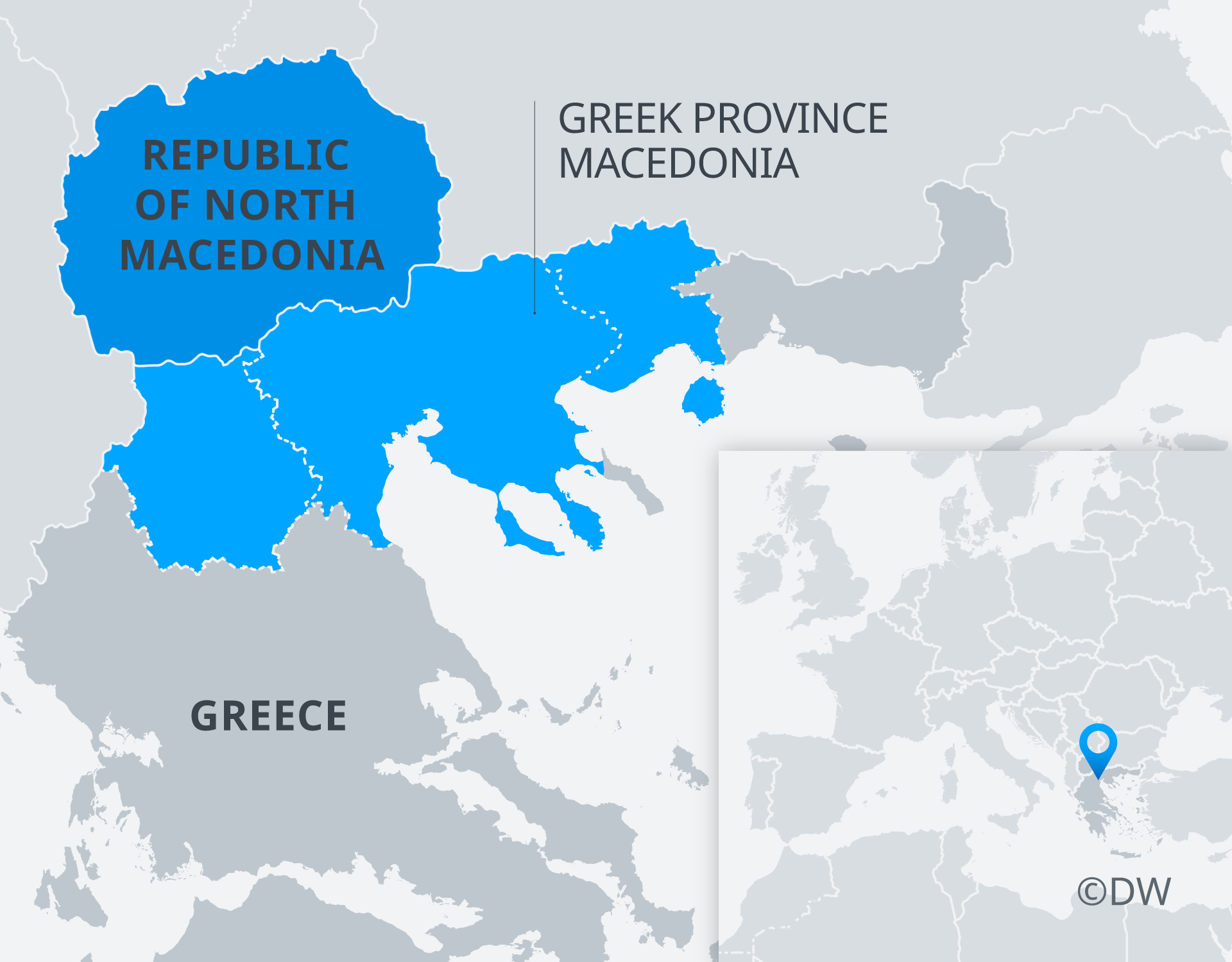North Macedonia and Greece: What's in a compromise?

"A compromise is the art of dividing a cake in such a way that everyone believes he has the biggest piece," former German Chancellor Ludwig Erhard once said. Is this suitable for North Macedonia and Greece?
If the perfect compromise is defined as a situation in which no one wins and no one loses then the conclusion of the decade-long name dispute between North Macedonia and Greece would not fall into this category. Not because there are no winners and losers. On the contrary. The so-called Prespa Agreement, named after the lakes shared by Albania, Greece, and North Macedonia, ended one of the most protracted and bizarre disputes in the world: a conflict between two neighboring countries over history, identity and territory. In many other parts of the world, those issues would have been discussed and possibly settled between historians, sociologists or anthropologists. But in the Balkans, all problems begin and end with politics. Thus the solution to the dispute seemed unlikely for a long time, and even today after its successful conclusion, it still appears as an exception to Winston Churchill's famous quote that many interpret as a rule about the Balkans as a region that produces more history than it can consume.

Of course the Balkanites will continue their quest for a better and more glorious past – nationalists in both North Macedonia and Greece who still oppose the name deal are the perfect example of that – but the Prespa Agreement offers something unique for both countries and the region: a chance to build a better and more glorious future.
Read more: North Macedonia name change enters force
To put it simply, this compromise did produce both winners and losers. The governments in Skopje and Athens led by Prime Ministers Zoran Zaev and Alexis Tsipras clearly fall into the first category. They risked their political future and faced strong opposition and protests, often violent, led by nationalists in their societies. The Ewald von Kleist Award, which Tsipras and Zaev received during the Munich Security Conference this year, was a just reward for their rapprochement policy.
The view from Skopje and beyond
For North Macedonia, the agreement opens the door to full membership in NATO and a chance to finally open accession negotiations with the European Union. Both NATO and the EU were long seen by the Macedonians themselves as guarantors for a stable and prosperous future of the small landlocked Balkan country. Now the new generation will finally have the chance to stop digging in the historical trenches and start planning for the future.
The historic reconciliation also gives Greece a chance to finally close one chapter that produced many political crises in the past 28 years since the (former) Republic of Macedonia declared its independence from the former Yugoslavia. Instead of a problematic neighbor, Greece now has an ally on its north border, no small feat considering its tricky relations with other neighboring countries, most of all Turkey. The deal serves the strategy of the Greek government to become "a leading force in the Balkans and the East Mediterranean," as PM Tsipras stated in December last year.
Read more:Greece's anti-Macedonia protests fuel nationalist sentiment
In the broader Balkans and South East European context, the Prespa Agreement and North Macedonia’s entry into NATO improves regional stability in times when the ghosts of the past threaten to be unleashed – and especially in light of the expected solution to the Kosovo issue – with or without the proposed exchange of territories with Serbia.
A win for the EU

Last but not least, the agreement gives the EU something to work with in the Western Balkan region. It sets an example that Brussels can use to overcome the dispute between Kosovo and Serbia and solve the Bosnian conundrum.
Nationalists on both sides of the border are the clear losers in this compromise. Both in North Macedonia and in Greece they fought tooth and nail for the dispute to live on. For decades the dispute was both their modus vivendi and modus operandi. Without it they are left empty-handed in the pursuit of domestic and foreign enemies and populist topics.

